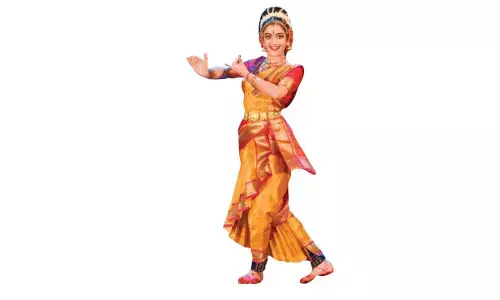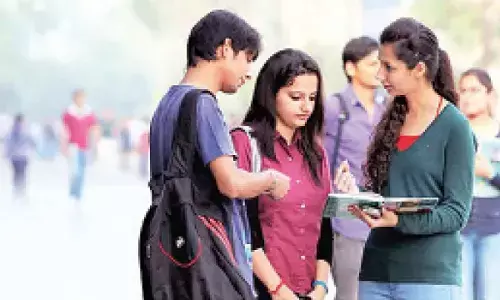A vision for Indian economy

India is at crossroads. Two years of the NDA Government have passed by. On the one hand there is a palpable sense of enthusiasm that a strong government is in place. On the other hand there is a growing sense of disenchantment that the common man has not gained much as was expected.
India is at crossroads. Two years of the NDA Government have passed by. On the one hand there is a palpable sense of enthusiasm that a strong government is in place. On the other hand there is a growing sense of disenchantment that the common man has not gained much as was expected.
There is a need to make a checklist of the merging challenges and finalise the contours of our response for the coming two decades. The first issue is of jobs. Large numbers of youth will enter the workforce in this period. Manufacturing is unlikely to provide jobs to these new entrants. It is difficult to secure a huge increase in manufacturing in our country because we do not have the land, minerals or electricity that are necessary for this.
Moreover, manufacturing is increasingly being undertaken by automatic machines. Some of the newest plants are manned entirely by robots. A sugar factory I know was crushing 2000 tons of sugarcane every day in the sixties and employing 200 workers. Today the same factory is crushing 8000 tons of sugarcane but employing only 500 workers. The capacity has increased fourfold while employment has decreased to one-fourth.
The vision must be to focus on the services sector. We should think of the new services that are emerging on the horizon such as space travel, customised computer games, production of fruits and vegetables of customised shape and taste, astrology and palmistry, production of movies in various foreign languages, translations between global languages like from Chinese to French and so on.
The demand for these services is virtually unlimited. The spread of e-literacy has already laid the foundations of this jump. The government must take the initiative to capture these emerging markets. Production of these services requires large numbers of educated workers and does not require huge amounts of natural resources like iron or electricity and matches with our resource endowment.
The government must establish e-service institutes along the lines of IITs, IIMs and NIITs to give a push to this market. These institutes must establish specialised courses in services such as translations, editing, e-astrology, call centers so that large numbers of our youth are enabled to enter this field. The second challenge is to work out our relationship with the global economy.
Main problem is that globalisation involves a race to the bottom. Every country has to per force match the wages of the poorest country. If, for example, Vietnam is able to produce a T-Shirt for $ 2 by paying a salary of, say, equivalent of Rs 200 per man day, then all countries of the world will have to pay this low wage in order to survive in the market.
The wages in India have come under pressure due to the imports of cheap goods from China. Indian toy makers are forced to pay less because of competition from these imports. The only way to secure an increase in the wages of our people is to erect a wall against cheap imports. We must embrace protectionism for the domestic economy and embrace globalisation for the world economy.
The trick lies in imposing import taxes to raise the domestic prices so that higher wages can be paid to our worker who is making the T-Shirts. Simultaneously, we must provide export subsidies to enable our industries to compete in the global markets despite paying high wages. The price of T-Shirt in India will be higher than the price in the global market.
The higher price will enable our manufacturers to pay higher wages to the workers. The high import duties will provide protection from cheap imports. The export subsidies will enable our manufacturers to nullify the higher cost due to high wages and compete globally. The government must provide export subsidies equal to the increase in cost due to high wages.
There is a need to revisit the WTO Treaty in the light of this necessity. We must find ways of implementing this model within the existing WTO Treaty. We must consider exiting the WTO if necessary. The goal of the government must be to secure the welfare of our people. If necessary, we must accept lower rates of growth. Of what use is growth if it does not lead to welfare of our people?
Three, we need to focus on sources of energy that suit our natural resource endowment. We do not have coal to last for many decades. Nuclear power generated from imported uranium makes us dependent on the antics of foreign powers just as China has blocked our entry into the Nuclear Suppliers Group. We have plentiful resources of thorium though.
The technology of producing nuclear power from this fuel is as yet undeveloped. China is to commission the world’s first thorium based nuclear plant soon. We must make big effort to develop this thorium based nuclear power. The government is moving fast to develop our solar energy resources. This step is in the right direction. It must be pushed with full vigor.
Four, we must free our people from the shackles of the welfare mafia. Most states are using all their receipts from sales tax only for paying the salaries of government teachers. These teachers are paid about five times the salary of their brothers and sisters working in the private sector. The quality of their teaching is poor. Large numbers of their students fail. The same holds for health. The challenge is to free the country from the grip of this welfare mafia.
The government school system should be dismantled. Vouchers must be given to every school going child. The student must be given the freedom to buy education from whichever school he wants. The money being paid to the government health employees must be used to buy universal health insurance for all the people. We need to solve the four problems at the roots to make India a great country in 15 years. Author was formerly Professor of Economics at IIM Bengaluru
By Dr Bharat Jhunjhunwala














